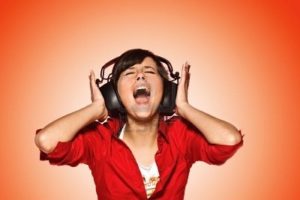 Well, this is going to be a cheery post, isn’t it?
Well, this is going to be a cheery post, isn’t it?
I’m not going to back away from it though – it needs addressing. There are many things which stop you singing – and not just singing, but being creative in any form at all. The one that I hate most is depression. It’s not fashionable, and it’s definitely not the sort of thing that one often talks about in company, but if you catch people quietly, and in a confidential mood, you may discover that depression is a thing that happens to far more people than you realise.
I’ll put my hands up and say that I suffer from depression. There you go. I’ve said it. Over the years I’ve figured out how to hide it pretty well, and most people who aren’t close to me even realise that it is a thing. But it most definitely is. And when I’m depressed I find it incredibly hard to create anything of any merit. Or maybe it’s just that I think it has no merit because I’m depressed. In actuality, I don’t much care about the “why”, I just can’t do anything. It’s horrible and tends to lead to a downward spiral of negativity which never ends in a particularly good place.
I’m luckier than most because I run choirs. I am forced to sing multiple times every week because otherwise I am letting people down. And if there’s one thing that makes me feel worse than having to go out and do things whilst depressed, it’s letting other people down. So… I sing. I have to sing.
And no matter how bad I feel before I go out, I can *guarantee* that I’ll feel better after I’ve sung for an hour and a half. I can feel the depression ‘fog’ lifting, and for a not-inconsiderable amount of time, I do feel a whole lot better. This works whether the depression is situational or just out-of-the-blue chemical.
But why? Well, there’s significant evidence to show that when we sing or make music of any kind, our brains release dopamine. Dopamine is the “pleasure” chemical that is released in our brains when we do something that feels good – eating chocolate, taking a hot bubble bath or falling in love. It is the same neurotransmitter that some of the more addictive drugs can stimulate. Singing really does make you feel high in the same way that a tiny dose of an illegal drug might do. Added to this, the action of opening your lungs and breathing intensively will aerate your blood and make your heart pump a little faster, which will make you feel more alert and combat the tiredness which depression often triggers. If you are singing with a group of other people in a communal setting such as a choir, then it becomes even better. It’s been proven in scientific studies that singing in groups makes our heartbeats synchronise and gives us a feeling of belonging and self-worth that is difficult to mimic in any other way. Singing with other people bonds you into a social group, literally, and helps to battle the isolation of depression.
The important thing to remember is that singing is only going to help if you ACTUALLY DO IT. The cruel irony of life with depression is that it tries very hard to isolate you and stop you from doing anything at all, when going out and doing something is exactly what you need. The urge to just stay at home in bed or on the sofa is very, very strong. But if you can force yourself to go out and sing, it *will* help, I promise.
It’s well worth talking to your choir leader as well. Let them know how you’re feeling, and they’ll keep an eye on you. If there are certain songs that trigger feelings of sadness or depression, tell your choir leader, so that they can work on other things if at all possible. Remember that this is a partnership, and it is only by working together that you’ll get all the benefits. Let your choir leader know what’s happening with you, and let them help.
So there we go. I get depression. I sing. It helps. I hope it helps you, too…
 For most beginning singers, the volume of their voice is something that bothers them almost as much as how in tune they are. I’ve lost track of how many times I have stood in front of a group of new singers and asked them to reproduce a note, and hear them enthusiastically sing back a variety of wrong notes, then ask them to do the same exercise again, but quietly, and hear 95% of them hit the note accurately.
For most beginning singers, the volume of their voice is something that bothers them almost as much as how in tune they are. I’ve lost track of how many times I have stood in front of a group of new singers and asked them to reproduce a note, and hear them enthusiastically sing back a variety of wrong notes, then ask them to do the same exercise again, but quietly, and hear 95% of them hit the note accurately.